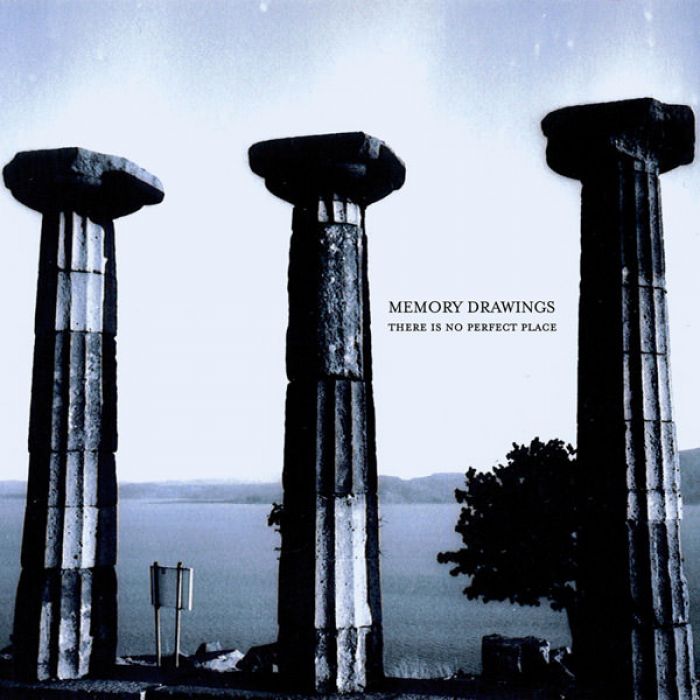There is No Perfect Place by Memory Drawings (Review)

What comes to mind when I tell you that the predominant instrument on Memory Drawings’ There is No Perfect Place is the hammered dulcimer? You might jump to the conclusion that the album is an exercise in “old timey” folk music straight out of Appalachia’s backroads. However, you’d be quite wrong. The dulcimer may conjure up images of rough, rustic music, but that’s a far cry from the sounds you’ll hear on There is No Perfect Place.
Well, sort of.
There’s certainly a “down home” aspect to the music, an earthy quaintness to it. But more often than not, the dulcimer’s blending with more “traditional” instruments (e.g., guitars, synths, drums) adds a rough-hewn elegance to the music that only enhances its mournful and autumnal qualities.
I apologize to Memory Drawings if they’ve grown tired of the Hood comparisons, but such comparisons are sort of unavoidable. For starters, one of the band members is Richard Adams, one of Hood’s founding members (and also a founding member of The Declining Winter). But more importantly, like Hood, there’s a elegiac and pastoral quality to Memory Drawings’ music. There is No Perfect Place is largely an instrumental affair — the sort of meandering instrumental music that makes you yearn for autumn to paint the leaves and bring a sharp edge to the air. That makes you want to slip on a favorite jacket and scarf and take a long, solitary walk through that chilled world.
Case in point, “There is A World Without You,” the album’s first “single.” Ghostly atmospherics immediately cool the song, setting the tone for sparse drums and acoustic guitar, and Sarah Kemp’s mournful violin melody. Meanwhile, Joel Hanson’s crisp dulcimer tones serve as the song’s emotional pinpricks, each pluck and strike bringing the song’s reflective mood into greater focus and clarity. On “Coldstream,” Kemp’s violin takes greater prominence, weaving through itself and around the other instruments like a river of memories. And earlier on the album, “I Could Live Like This Forever” finds Hanson layering his dulcimer’s clear tones over sparse, solemn piano notes.
As lush and evocative as the music can be, though, there’s also something sketch-like and incomplete about it. Though evocative, these are still spartan songs — which make them a solid base for several remixers, including William Ryan Fritch, Pausal, Talvihorros, and Benoît Pioulard. Fritch’s remix of the title track is particularly lovely: he spotlights a solemn-yet-uplifting violin melody before transforming the song into a building swirl of strings, ghostly vocals, and gentle electronic textures.
Similarly, Talvihorros’ remix of “Coldstream” also focuses on a single element of the original — in this case, the spartan piano melody — and makes an already frosty song a good deal chillier with swells of noise and drones. Benoît Pioulard, meanwhile, interprets the title of “I Could Live Like This Forever,” one of the album’s shortest tracks, quite literally; he blurs the original’s dulcimer tones and stretches them out into vast, drifting swaths of sound that contain mere hints of the original melody.
I’m always eager for fall to properly arrive, and Memory Drawings’ latest does nothing to abate that. And if you’ve spent any time reading Opus, then you know I have a thing for autumnal music, and There is No Perfect Place is another fine addition to that particularly large part of my library.